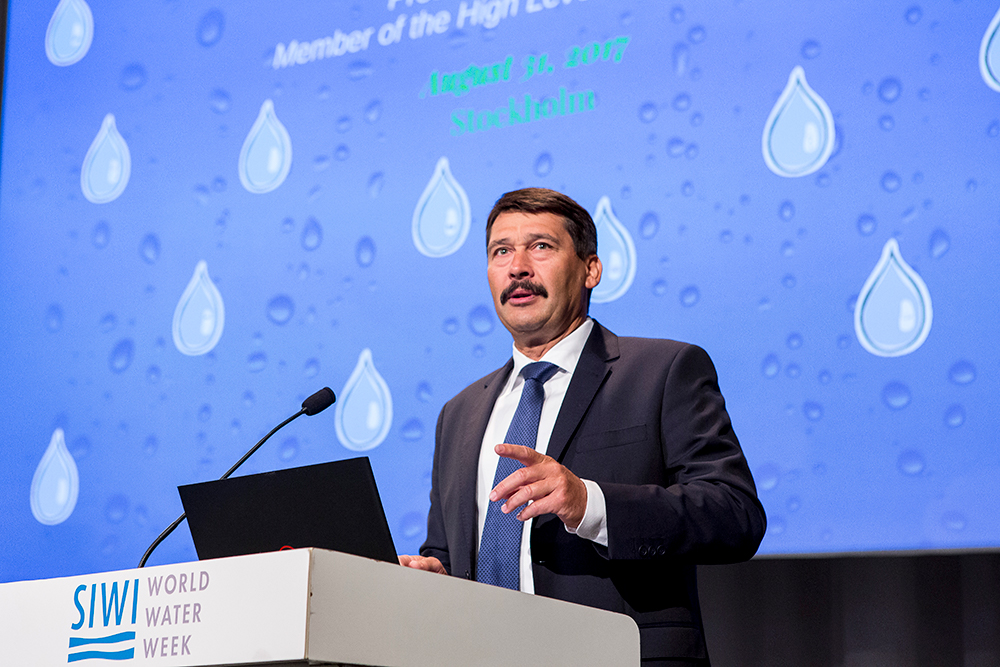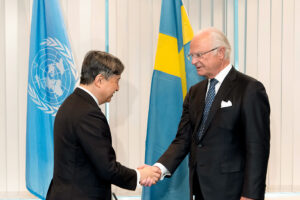A question of attitude and quantification
We have the knowledge and the technology to improve the water situation. We claim that we have the will. Many even argue that we have the money. So, why are things not moving ahead more rapidly?
This was one of the key questions during the annual so-called stock-taking event, jointly organized by SIWI and The Rockefeller Foundation at World Water Week 2017. Opening the session, the Hungarian president, János Áder, came out in strong support for finding new ways to tackle climate and water issues.
He referred directly to the American president, saying that however unbelievable it is, a few influential people – such as Donald Trump – still do not understand that we have long since moved from the question “why?” to the question “how?”.
“We were all flabbergasted when the American president walked out on the climate talks in Paris. It highlights that we cannot rely on heads of state to make the necessary moves. We need new alliances, and I believe we must look at sub-sovereign and non-governmental organizations for that.”
He added that he also believes there is a need for a structural reform within the UN, stating that there are currently 28 different organizations within the UN system dealing with water issues.
“We need one organization, otherwise we will lose track of the actual problem,” he said.
During the following panel discussion, the panellists went into more detail on the difficulties going from insight to action. Stefan Uhlenbrook, UNESCO, addressed the often-cited explanation of lack of funds:
“Investing in water and sanitation shouldn’t be about profitability because we know that money put in water and sanitation have a return of investment of between four and five.”
Instead, Uhlenbrook boiled it down to a question of attitude and quantification. He said that sanitation is simply not sexy in the minds of investors:
“It might be gold, but it’s brown. Sanitation is seen as a burden, not a business proposal, and I would like to see that attitude change.”
And as for politicians, several panellists agreed, that their main currency is electoral support. That means that if they cannot quantify the immediate benefits of investing in water and sanitation, there is a risk that the issue will remain unaddressed. That is because there are other, easier and faster ways to earn the votes of citizens.
“The same logic applies to the SDGs. We have heard during the week that SDG6 runs the risk of lagging behind, despite being linked to all other SDGs. I think that is because it is very difficult to quantify its impact on the other goals. How do you for instance measure the health impact of not having access to clean water?” Uhlenbrook asked.
This article was written by Andreas Karlsson and appeared first on WaterFront Daily.








